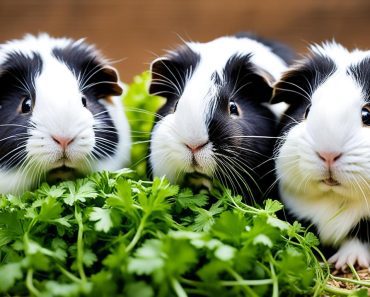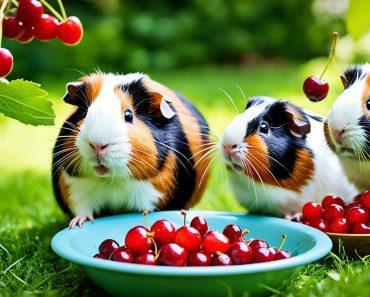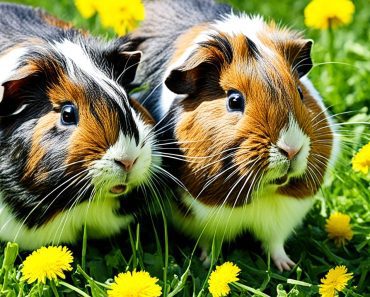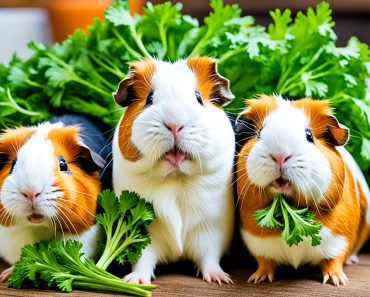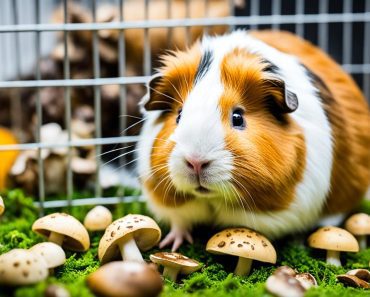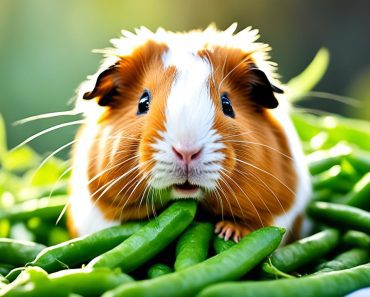Are you wondering: can guinea pigs eat beetroot? Well, the good news is that guinea pigs can indeed eat beetroot! Not only is it safe, but it also provides them with various health benefits. However, there are a few important things to keep in mind when feeding beetroot to your guinea pig to ensure their well-being.
Beetroot is packed with essential nutrients that can support your guinea pig’s overall health. This vibrant vegetable is rich in vitamin C, which boosts their immunity and helps prevent scurvy. It also contains calcium and phosphorus, which are crucial for maintaining strong and healthy bones. Additionally, the fiber content in beetroot aids in digestion and contributes to a healthy cardiovascular system.
While beetroot can be a nutritious addition to your guinea pig’s diet, it’s important to exercise moderation. Overfeeding or feeding beets too frequently can lead to digestive problems and urinary tract issues, particularly for guinea pigs prone to bladder or kidney stones. Monitoring their portion sizes and observing their waste output is essential to ensure their well-being. Typically, one or two quarter-inch slices of an average-sized beet are recommended as a serving size.
Beetroot can be served in shredded or chunked form, depending on your guinea pig’s preference. Additionally, the beet greens and stalks can be fed in small amounts for added variety. It’s important to note that while beets can be included in their diet, they should not be fed every day, as a balanced and varied diet is key to their overall health.
Can Guinea Pigs Eat Beetroot? Yes, they can, in moderation.
- Guinea pigs can eat beetroot in moderation, as it provides various health benefits.
- Beetroot is rich in vitamin C, calcium, phosphorus, and fiber.
- Moderation is crucial to avoid digestive problems and urinary tract issues.
- The recommended serving size is one or two quarter-inch slices of an average-sized beet.
- Beet greens and stalks can be fed in small amounts for added variety.
Health Benefits of Beets for Guinea Pigs
Beets offer several health benefits to guinea pigs. Incorporating beets into a guinea pig’s diet can contribute to their overall wellbeing.
- Cardiovascular Health: Beets help maintain a healthy cardiovascular system by improving blood circulation and preventing anemia.
- Antioxidant Protection: Beets contain antioxidants that fight inflammation and protect against free radicals.
- Digestive Aid: The fiber in beets aids in digestion, preventing constipation and other digestive problems.
- Weight Loss: The fiber in beets helps improve feelings of fullness and can contribute to weight loss in guinea pigs that tend to overeat.
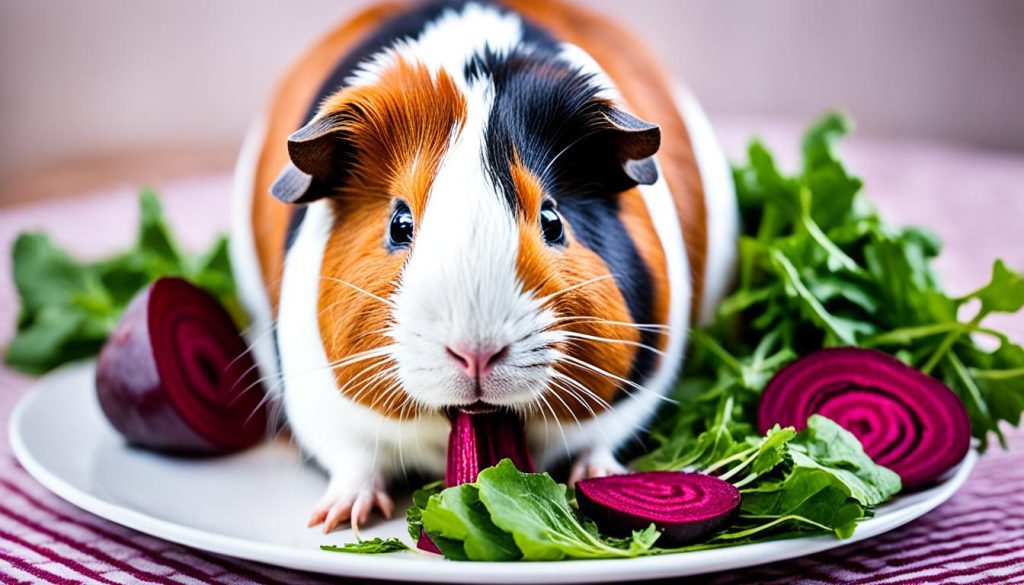
“Incorporating beets into a guinea pig’s diet can provide cardiovascular health, antioxidant protection, aid in digestion, and contribute to weight loss.”
Beetroot Nutrition:
| Nutrient | Amount per 100g |
|---|---|
| Calories | 43 |
| Carbohydrates | 9.6g |
| Fiber | 2.8g |
| Protein | 1.6g |
| Fat | 0.2g |
| Vitamin C | 4.9mg |
| Calcium | 16mg |
| Phosphorus | 40mg |
Risks of Feeding Beets to Guinea Pigs
While beets offer health benefits, it’s important to be aware of the potential risks associated with feeding them to guinea pigs. Careful consideration and moderation are key to ensuring the well-being of our furry friends.
Beetroot Digestive Issues
Feeding beets in excess or too frequently can lead to digestive problems in guinea pigs. These issues may include bloating and diarrhea, which are usually prevented by the consumption of beets in appropriate portions.
Guinea Pig Urinary Tract Problems
If your guinea pig is prone to bladder or kidney stones, it is advisable to avoid feeding them beets. Beets have the potential to cause urinary tract issues in such cases, so it’s better to err on the side of caution and choose alternative vegetables.
| Keyword | Challenge | Solution |
|---|---|---|
| Guinea Pig Calcium to Phosphorus Ratio | Beets have a calcium to phosphorus ratio of 0.4:1, whereas the ideal ratio for guinea pigs is 1.33:1. | Ensure a balanced diet by incorporating other foods with a higher calcium to phosphorus ratio. This will help maintain the proper nutritional balance for your guinea pig’s health. |
| Guinea Pig Portion Moderation | Overfeeding beets can lead to health issues such as digestive problems and urinary tract issues. | Moderate the portion sizes of beets and monitor your guinea pig’s waste output to ensure they are receiving an appropriate amount. |
Note: It’s important to consult with a veterinarian regarding your guinea pig’s specific dietary needs and any pre-existing health conditions before adding new foods to their diet.
By being aware of these risks and taking the necessary precautions, we can provide a safe and balanced diet for our guinea pigs that includes the occasional serving of beets.
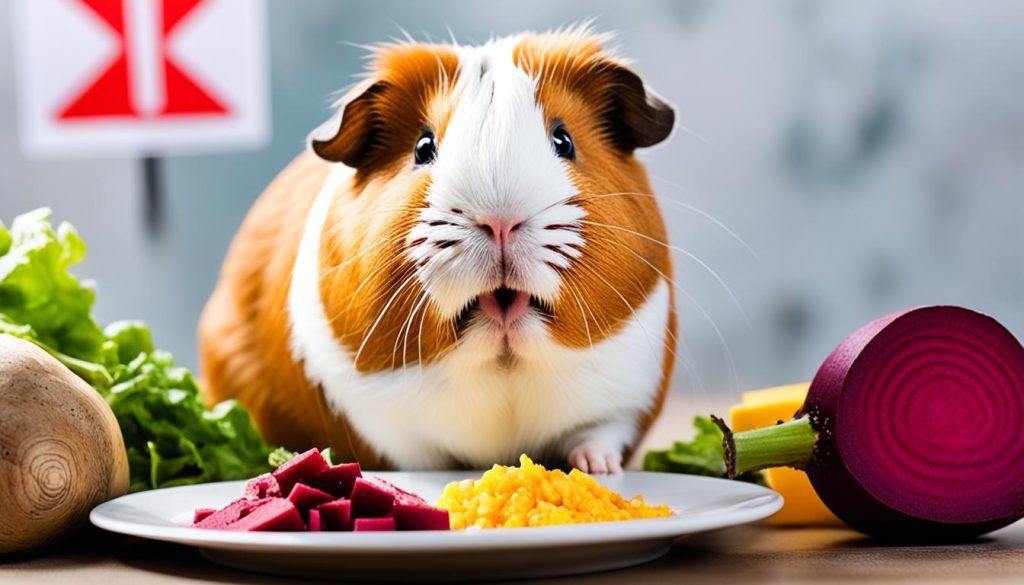
Feeding Guidelines for Beets
When it comes to feeding beets to your guinea pigs, it’s important to keep a few guidelines in mind. Ensuring proper portion sizes and considering different serving options can help provide a balanced and nutritious diet.
1. Moderation: Beets should be fed in moderation to prevent any potential digestive issues or health complications. It is recommended to limit the consumption of beets to one or two times a week at most. This allows your guinea pigs to enjoy the benefits of beets while minimizing any potential risks.
2. Serving Size: The recommended serving size of beets for guinea pigs is one or two quarter-inch slices of an average-sized beet. This size serves as a suitable portion without overwhelming their dietary balance. Remember, moderation is key.
3. Serving Options: Some guinea pigs may prefer beets in shredded form, which can make it easier for them to eat and digest. Others may enjoy beets in chunks or strips. Pay attention to your guinea pigs’ preferences and adapt the serving style accordingly to ensure they can comfortably consume the beets.
4. Beet Greens: It is safe to feed guinea pigs the beet greens and stalks alongside the beet root. However, it is important to note that the serving size of the beet greens and stalks should be very small if your guinea pigs are already being fed the beet root. Including an inch of the stalk or a single leaf alongside the beet root can provide variety without compromising their nutritional balance.
Overall, incorporating beets into your guinea pig’s diet can provide them with variety and essential nutrients. Following these feeding guidelines ensures that your guinea pigs can safely enjoy the benefits of beets without any adverse effects.
| Feeding Guidelines for Beets: | |
|---|---|
| Feeding Amount | One or two quarter-inch slices of an average-sized beet |
| Serving Options | Shredded, chunks, or strips |
| Beet Greens and Stalks | A very small amount alongside the beet root |
Other Suitable Foods for Guinea Pigs
In addition to beets, guinea pigs can enjoy a variety of other safe foods to maintain a balanced and nutritious diet. Here are some options:
Leafy Greens
Leafy greens are an essential part of a guinea pig’s diet. They provide important vitamins and minerals. Suitable leafy greens for guinea pigs include:
- Romaine lettuce
- Green leaf lettuce
- Red leaf lettuce
- Collard greens
- Mustard greens
- Kale
- Turnip greens
Fruits and Vegetables
Guinea pigs can enjoy a variety of fruits and vegetables in moderation. Here are some recommended options:
- Bell peppers
- Raw beets
While these options are safe for guinea pigs, it’s important to avoid feeding them high-sugar and high-calcium foods in excess. Carrots, parsley, spinach, and cabbage should be fed sparingly.
Hay and Pellets
Hay is an essential part of a guinea pig’s diet. It helps maintain their dental health and provides necessary fiber. Offer unlimited quantities of hay, including options like:
- Alfalfa hay
- Timothy hay
- Orchard hay
- Bluegrass hay
- Kleenmama’s bluegrass hay
Pellets can also be included in a guinea pig’s diet, but choose high-quality options without added nuts, seeds, or colored bits. Follow the recommended serving size.
Remember to introduce new foods gradually and monitor your guinea pig’s response. A varied diet that incorporates different safe foods will help keep your guinea pig healthy and happy.
Importance of Hay in Guinea Pig Diet
Hay plays a crucial role in a guinea pig’s diet. It provides essential nutrients and helps maintain a healthy digestive system. Guinea pigs have unique dietary requirements, and hay is a primary component of their daily food intake.
Guinea pig hay serves as a valuable source of nutrients, including essential fibers, vitamins, and minerals. It is low in calories and helps prevent obesity in guinea pigs by promoting proper digestion and regulating their appetite. Hay also helps wear down their continuously growing teeth, preventing dental problems.
There are different types of hay available for guinea pigs, each with its own nutritional profile:
- Timothy hay: This is the most commonly used hay for guinea pigs. It has a balanced nutritional composition and is readily available in pet stores.
- Alfalfa hay: Suitable for baby, sick, pregnant, or nursing guinea pigs due to its higher nutritional content. However, it should be fed in moderation to adult guinea pigs due to its calcium and protein levels.
- Bluegrass hay: Kleenmama’s bluegrass hay is a popular option. This hay can be a special treat for guinea pigs, adding variety to their diet. Bluegrass hay provides additional nutrients and a different taste for guinea pigs.
When choosing guinea pig hay, it’s crucial to opt for high-quality hay that resembles dried soft grass and is free from yellow patches or mostly sticks. This ensures that guinea pigs receive the necessary nutrients and enjoy the hay’s taste and texture.
“Proper nutrition and digestive health are essential for the overall well-being of guinea pigs, and hay is a key component.”
Having an unlimited supply of hay is vital for guinea pigs. They should have constant access to hay throughout the day and night. This allows them to graze, mimicking their natural feeding behavior in the wild. Hay also keeps their digestive system healthy by preventing hairballs, digestive blockages, and other potential health issues.
Conclusion
Incorporating beets into a guinea pig’s diet can provide various health benefits. Beets are rich in essential nutrients, including vitamin C, calcium, and phosphorus, that contribute to overall wellbeing. However, it’s important to feed beets in moderation to prevent digestive problems and urinary tract issues. Monitoring portion sizes and waste output is crucial for maintaining a balanced diet for guinea pigs.
Alongside beets, there are numerous other safe foods that can be included to provide a varied and nutritious diet for guinea pigs. Leafy greens, such as romaine lettuce and kale, fruits like bell peppers, and vegetables including raw beets can be incorporated to meet their nutritional needs. Additionally, hay and pellets should be provided to ensure a constant source of nutrients and maintain a healthy digestive system.
Understanding the nutritional requirements of guinea pigs and making informed feeding decisions is key to their overall health and wellbeing. A balanced diet, consisting of appropriate portions of beets and other safe foods, will support their immune system, cardiovascular health, and digestion. By following these guidelines, you can ensure that your guinea pig receives the necessary nutrients for a happy and healthy life.

